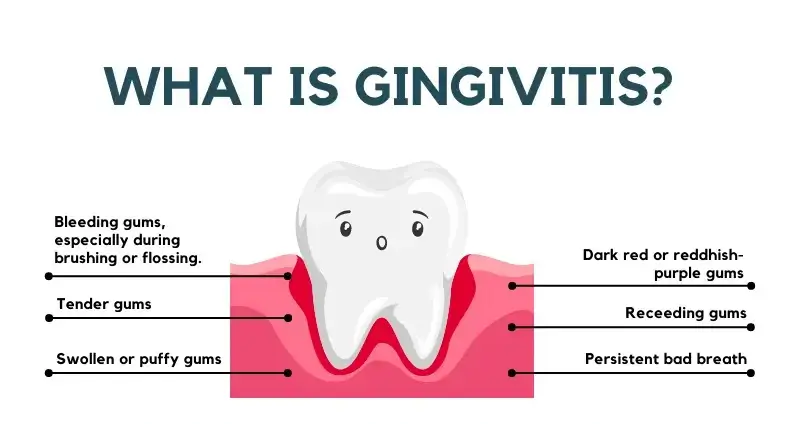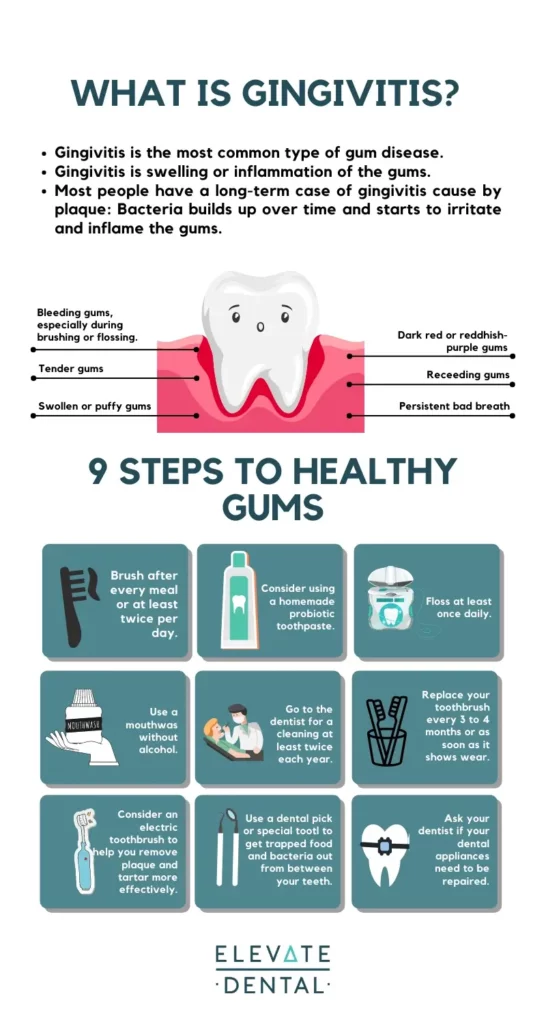Gingivitis is the most common type of gum disease. It is rare in children but often starts during puberty or early adulthood, and can...

Gingivitis is the most common type of gum disease. It is rare in children but often starts during puberty or early adulthood and can come and go throughout life.
As many as 70 per cent to 90 per cent of adults in the U.S. have gingivitis. In most people, it is caused by a buildup of plaque on the teeth and gumline. It is usually treatable and can be prevented using natural remedies and proper oral hygiene.
Gingivitis is swelling or inflammation of the gums. It is classified by how it looks, its cause, and how long it lasts. Different types of gingivitis include:

Most people have a long-term case of gingivitis caused by plaque. This means that bacteria aren’t properly cleared from the mouth. The bacteria build up over time and starts to irritate and inflame the gums. When plaque and poor hygiene are the problems, the condition can lead to inflammatory gingival enlargement or gingival hyperplasia — meaning swelling or overgrowth of the gums. Other types of gingival enlargement are caused by medication, health conditions, hormone imbalances or rare genetic conditions.
Gingivitis starts with mild swelling but can worsen over time, causing lesions, mouth pain, tooth loss and other signs of advanced gum disease.
Gingivitis — gums are red, swollen, and bleed easily.
Periodontal pockets — plaque begins to form below the gum line, gums recede, and pockets form.
Periodontitis — The chronic presence of plaque, tartar, and attending bacterial infection destroys the gum and bone structure that supports the teeth. It may result in them becoming loose and needing removal.
Yes and no. According to the American Academy of Periodontology, the bacteria that cause gingivitis can be spread by kissing, sharing utensils, or exchanging saliva. However, actually developing gingivitis depends on additional factors, such as how well you clean your teeth. They recommend not sharing toothbrushes or eating utensils with someone who has signs of gum disease.
To see the original infographic, click here.
Note: All content and media on the Elevate Dental Richmond website and social media channels are created and published online for informational purposes only. It is not intended to be a substitute for professional medical advice and should not be relied on as health or personal advice.
Book your checkup & clean or a Free Smile Consultation at our Richmond clinic. Same-day appointments may be available.
Book Now
